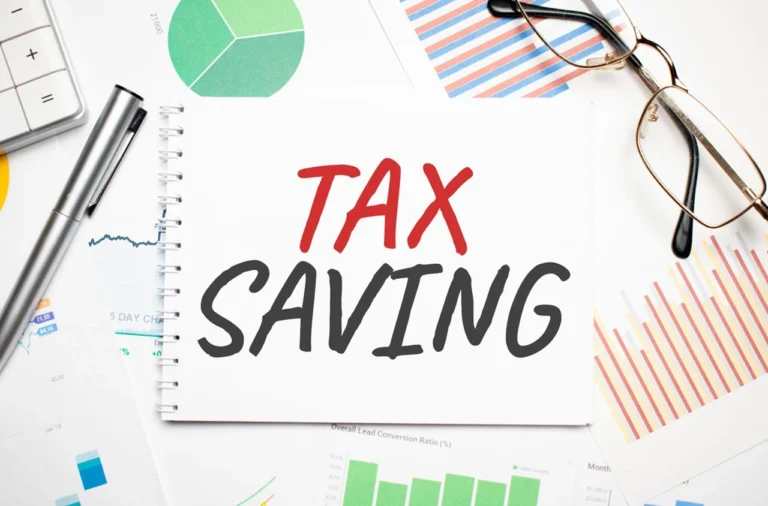Beyond the Bull Run: Unlocking Tax Savings from Crypto’s Volatility
Investing in cryptocurrency can feel exciting with big gains, yet for lots of people it means dealing with unpredictable price swings, including times when the market drops quickly. People often hear about big wins, but they seldom talk about losing money on investments. British investors face a special issue. A loss on paper stays an idea until someone does something about it. This difficult situation offers a good chance to turn a loss into a legitimate tax benefit. This helpful guide explains UK rules for taxing cryptocurrency. It shows people how a financial loss can actually be beneficial.
It’s more important than ever to really get this topic. More people in the UK are using cryptocurrencies. About 12 out of every 100 adults currently own, or have owned, crypto assets. This is a big jump from 2021, when only around 4 out of 100 adults did. With more people working, it becomes increasingly important to have simple, useful information about taxes.
Right now, the tax authority is paying closer attention to things like cryptocurrency. They plan new rules, as well as ways to report these assets. More people are investing, government rules are getting stricter, so good tax planning isn’t simply a good idea; it’s vital for your finances. This information helps people who invest understand changes happening now, so they feel secure making smart choices. It shows them ways to follow the law, lower the taxes they pay on profits, and safeguard their investments. This is why many investors seek specialized crypto accountant services.
The New Frontier of UK Crypto Taxation: What Every Investor Must Know
Understanding UK taxes on crypto starts with knowing how the government views these currencies. Currently, the government does not treat cryptocurrencies like regular money. Instead, it views them as possessions you can be taxed on when you sell them for a profit. Correct categorisation matters; it affects taxes for each sale. Generally, tax situations involving gains from selling something are covered by CGT, a tax you pay on the money you earn from the sale.
HMRC views “disposal” as covering many situations, not simply when you get money from selling something. It covers swapping one digital currency for another, employing digital currency to buy things, or merely giving digital assets to someone you are not married to. You figure out a profit or loss by finding the difference between what you originally paid for something, its value when you sell it, and then changing that amount to British Pounds. You usually pay taxes on rewards from things like mining or staking when you get them, just like regular income.
Investors now face a big shift because the amount of profit you can make on investments before paying tax has dropped significantly. This change goes beyond a simple fix. It’s a new rule that greatly affects how many UK investors plan their taxes. Each year, the amount of money you can earn tax-free goes down. It was £12,300 for the year ending April 2023, then £6,000 for the following year. Now, for the year ending April 2025, it’s only £3,000.
This change causes more people with investments to owe taxes, even if their investments are not large. Someone who made a £5,000 profit from cryptocurrency during 2022 or 2023 didn’t owe any taxes. However, the same £5,000 profit during 2024 or 2025 creates a £2,000 taxable profit. Capital Gains Tax rates changed after October 30, 2024. These new rates apply to people who pay basic, higher, or additional income tax. Managing your taxes carefully, using losses to your benefit, becomes really important for keeping your money safe. This is where the guidance of trusted crypto tax advisors becomes invaluable.
The government steadily lowered the amount of profit you can make before paying Capital Gains Tax. Tax authorities did this to collect more money, especially from people earning money with things like cryptocurrency. A larger starting amount gave small investors room to follow the rules, so they did not have to do complicated taxes or pay for a tax expert. Lowering the limit to £3,000 means a lot more people in the UK who have cryptocurrency will need to report it for tax purposes, and they may owe taxes too.
We changed our plans because more people quickly started using digital currencies. Because more individuals buy, sell, or use digital money, the government is changing tax rules to include these transactions. Changing things now turns a small loss, maybe a few thousand pounds, into something useful. It helps lower taxes by balancing out profits.
The following table summarises the changing tax allowances and rates, underscoring the urgency for strategic planning.
| Tax Year | Capital Gains Tax Allowance (Individual) | Basic Rate CGT | Higher/Additional Rate CGT |
|---|---|---|---|
| 2022/23 | £12,300 | 10% | 20% |
| 2023/24 | £6,000 | 10% | 20% |
| 2024/25 (Pre-Oct 30) | £3,000 | 10% | 20% |
| 2024/25 (Post-Oct 30) | £3,000 | 18% | 24% |
Prefer watching instead?
Here’s a video summary for you


Understanding What’s Actually Happened, Versus What Could Have Been. Money you expected to receive, but didn’t
To handle crypto taxes well, it’s important to know the difference between a loss you think you have, one that the tax rules accept. You have an unrealized loss when a cryptocurrency you hold becomes worth less than what you initially paid for it. Seeing this in your investment account might be annoying, but it doesn’t affect your taxes. This clarifies that lowering a price doesn’t always mean a tax advantage.
You need to experience a loss before you can claim it as a deductible loss. You get this when you sell something for less than what you initially paid for it. You must understand something before you can get a tax break. You can get rid of crypto in several ways. You might sell it for traditional money, exchange it for different digital coins, or simply use it to buy things you need. The tax office treats any of these steps, even if you’re just changing to regular money, as getting rid of an asset. This might mean you can claim a loss on your taxes.
Smart tax planning lets you benefit from market downturns. It’s a key part of keeping your taxes low. Investors lower taxes with a method called tax loss harvesting. It lets people take control of the taxes they owe. It changes something you own that isn’t earning much into real savings on your taxes. UK investors trying to lower their Capital Gains Tax should first grasp the idea of realising gains. This is a key first step. If you don’t do this, a loss is just a number; it doesn’t help you legally or with your money. Knowing how tax works with crypto losses lets people turn a falling market into a smart move, something good investors do to handle their investments. For definitive calculations and strategy, you need expert UK crypto tax professionals.
The Ultimate Tax-Saving Strategy: How to Offset Your Gains
A loss you can claim lowers the tax on your profits from sales. It’s simple, you lower your profit from investments by any losses you take from investments, all within the year for your taxes. Let’s say someone made a £15,000 profit from an investment; however, they lost £8,000 on other investments. They only pay tax on the £7,000 difference. You can use this tax break to lower your taxes; there’s no maximum on how much you can reduce them by.
Investors benefit because they can use future profits to offset past losses. When your tax year’s losses are more than your gains, you don’t lose the remaining amount. You can keep this amount for as long as you like, applying it to lower taxes on profits you make later. You need to tell the tax authority about your losses to get any advantage from them. You can report this information with a tax form, or you can write a letter. You must claim these losses within four years from the end of the tax year they happened. Act quickly, or you could miss out on this tax benefit.
Many people who invest wonder if they can lower taxes on profits from stocks, bonds, or real estate by using losses from cryptocurrency. Absolutely. If your investments in crypto go down in value, you can use those losses to lower the taxes you pay on profits from things like stocks, real estate, or investment funds. You can use losses from cryptocurrency to lower your taxes on other investments. This gives you a better way to handle your taxes overall. It’s important to know that in the United Kingdom, you cannot reduce your income tax bill using losses from cryptocurrency investments. This difference causes confusion for many people. Investors can lower their crypto taxes by using legal methods to balance profits. This is a really good way to save money.
A client came to Lanop Business and Tax Advisors after realising he hadn’t reported £9,000 worth of crypto losses over two years. We amended his records, carried the losses forward, and reduced his future Capital Gains Tax bill by nearly 50%, giving him a clear plan for compliance and savings.

How Our Lanop Advisors Are Revolutionising Crypto Tax Reporting
Dealing with taxes on cryptocurrency, like figuring out how much things cost when you buy bits at different times or filling out the newest tax forms from the government, usually confuses people who invest. Expert help really makes a difference here. The Lanop team offers advice; they don’t just complete tasks. They focus on making taxes easier, guaranteeing you only pay the correct amount.
Beginning with the 2024/25 tax year, HM Revenue & Customs now asks people to list crypto assets individually when they file them tax returns. This change shows they will be paying closer attention to these investments. Good records are really important now, because mistakes can cause investigations, hefty fines. Lanop’s skilled staff helps with these updates, offering timely assistance to manage each rule thoroughly.
The company does more than prepare your taxes. Lanop helps with your crypto taxes, preparing the correct tax forms. It makes sure you list every expense and loss you can claim. The company works closely with clients, guiding them through complex tax regulations like grouping rules, so they get the most tax savings possible. Help from real people gives you clear direction, relieving worry. This lets investors concentrate on their investments with assurance. This service simplifies complex paperwork, making taxes easier to manage.
Capitalizing on Every Scenario: From Market Falls to Unforeseen Events
A good tax plan should consider events beyond a normal dip in the market. It should cover the toughest situations, like losing money from being stolen, an exchange going bankrupt, or a project not working out. Such situations frequently make investors feel powerless, thinking they cannot take any legal action. Certain tax laws let you report a loss, then receive a tax advantage.
People usually get money back when something loses all it’s worth by filing a “no value” request. An investor can report a financial loss on an investment that has little or no value, even if they haven’t sold it, using this legal option. It’s a strong way to handle worthless assets. This really matters for investments affected by fraud, where creators quit working on a project, resulting in the tokens people own becoming worthless. If tokens become useless, investors can sell them or trade them to acknowledge a loss.
Alternatively, if the blockchain stops working, they might get a very small amount of money back. When cryptocurrency goes missing or someone takes it, the situation is complicated. The tax office usually doesn’t see these as a sale because the assets legally stay on the blockchain. If someone invested money, they might get a small amount back if they prove it is impossible to get their cryptocurrency back.
If cash gets stuck on a trading platform because of a failure, like what happened with FTX, people who invested need to wait until the legal process finishes. When money cannot be collected, you can file a small claim to lower taxes on later profits. This plan uses a big financial setback to save on taxes for years to come.
The ideas about reducing losses with other gains, or saying something isn’t worth much, work with digital collectables, too. When an NFT loses a lot of value, someone who owns it can get rid of it, even destroy it, to claim a tax loss. They can use this loss to lower the taxes they owe on any profits from selling other investments that same year. Smart investors find many ways to lower taxes, because these legal rules cover so many kinds of financial setbacks. It shifts the conversation from quick changes in the market to carefully planning investments.
The Golden Rule of Compliance: Why Keeping Records is Your Secret Weapon
Keeping careful records is essential when you deal with cryptocurrency. It’s the law, it protects you if tax authorities ask questions. Keeping good records is important. You need clear, trustworthy records. Otherwise, you cannot show how much things cost to obtain, figure out your profit or loss accurately, or explain your taxes to the tax authority if they ask. If you don’t, you could face large fines. These fines reach as much as the full tax amount if the tax authority finds the issue first. Avoid facing an HMRC investigation by having every transaction documented.
The tax authority told investors exactly which documents to save for every deal. This covers what kind of tokens, when they were gotten rid of, how many tokens people purchased or gave up, also the price of each deal in British Pounds when it happened. You should also track expenses from trades, crypto wallet details, and a current tally of shared expenses for each digital currency. You really need to pay attention because of updates to tax reporting. Starting with the 2024/25 tax year, you must show crypto assets as a distinct item on your tax return. The tax authority made this change because many more people now own cryptocurrency.
Information from the FCA reveals many more people in the UK now have cryptocurrency. This growth explains why the tax authority is making rules stricter. More people use digital money, so we need clear tax rules. Because more people are using the system, the tax authority created new forms, requiring more information. They want to understand what people are doing with their taxes better.This is why having professional Self-Assessment support is more critical than ever.
People are now looking very closely at investments, so investors must keep careful records. A crypto tax calculator or app makes things easier. It brings in your transaction info automatically, then figures out your profits or losses. Using these tools wisely keeps you on the right side of regulations. It also prepares investors for questions from the tax authority, changing a stressful problem into a helpful part of good financial planning.
Mastering the Art of Tax Loss Harvesting: A Strategic Playbook
Smart investors actively find investments with losses to lower their taxes, instead of waiting until the year’s end to report them. You sell crypto investments that are losing money on purpose, at a good time. This creates a loss you can use to lower taxes on profits from other investments. This plan works really well when markets change quickly. It lets people invest when prices drop, which helps them reach their financial goals over time.
Be careful not to run into a situation called “bed breakfasting.”. This rule stops someone with investments from selling a cryptocurrency at a loss, then immediately repurchasing it within 30 days. They cannot do this to claim a tax break on the loss. This rule stops people from creating a tax benefit on an investment without selling it. They cannot claim a loss while still owning the asset. If an investor breaks this rule, the price they recently paid becomes the basis for figuring out profit or loss later. This might change whether they get the tax break they expected. Clever investors get around this rule by holding off on buying the same asset for over 30 days, or by purchasing a different cryptoasset right after they sell.
Dealing with taxes gets trickier because of specific HMRC rules about how money is grouped together, then assigned to people. These guidelines show how we pair sales with purchases. First, a sale is compared to any purchases of the same item on that day. Next, it gets checked against purchases made within the following 30 days. Lastly, it uses the total cost of all other items of that kind. This is the HMRC’s complex Share Pooling rules which creates a detailed step for figuring out taxes, so you need to keep good records. This makes sure the numbers are correct, it follows the rules. Knowing these rules well shows you have a good tax plan.
The following table provides a quick guide to common taxable events, helping investors identify which transactions require their attention.
| Transaction Type | Is it a Taxable Event? | What Kind of Tax? |
|---|---|---|
| Selling crypto for fiat | Yes | Capital Gains Tax |
| Swapping one crypto for another | Yes | Capital Gains Tax |
| Using crypto for a purchase | Yes | Capital Gains Tax |
| Gifting crypto (non-spouse) | Yes | Capital Gains Tax |
| Staking rewards / Mining | Yes | Income Tax (generally) |
| Buying and holding crypto | No | N/A |
| Transferring crypto between your own wallets | No | N/A |
| Gifting crypto to a spouse/civil partner | No | N/A |
The Lanop Difference: Your Strategic Ally in the Digital Asset Space
Lanop believes accounting connects to bigger ideas; it isn’t only about figures. We help you take control of your money, with a clear plan, a good approach, and complete confidence. The company began in 2010, becoming a full online accounting, tax help resource located in the UK. It works with clients, offering both skilled support for rules as well as advice to plan. This method tackles the difficulties people face with their finances today, especially those working for themselves or running small businesses.
Lanop solves problems for people investing in crypto, as well as for businesses that use it. It focuses on what these users really struggle with. The company offers helpful support from real people. The Lanop team gives advice, provides continuous help, and makes things easy to understand. Many other services just complete paperwork. We help people with tricky tax strategies like tax loss harvesting. We also make sure they know about their taxes beforehand.
The company ensures everything follows the rules, with skilled people handling it. Tax experts, including qualified accountants, manage all tax returns for clients. They make sure clients pay the correct amount of tax, following the law, to steer clear of fines. It’s important, especially with the tax office looking closely at things now. Also, Lanop helps you save on taxes with smart planning. We work to get clients the lowest possible tax bill, finding every chance to save money.
Lanop gives you a current, online system for understanding your finances instantly. The company uses tools like Xero also QuickBooks to change financial information into a plan for moving forward; it’s more than just looking at what happened before. Lanop does things differently, looking ahead with technology. This makes Lanop stand out. This company goes beyond just helping you. It creates a working relationship, giving you clear costs with as much guidance as you need so you feel confident and comfortable with your money decisions. After learning about offsetting your losses, it’s important to know how HMRC calculates your base cost for crypto assets.
Conclusion: Transform Your Tax Liability into a Strategic Advantage
Losing money with crypto isn’t the final word. It’s a useful, legitimate way to lower the taxes you pay on profits, also to balance out earnings later. You can lower your tax bill with careful, informed tax preparation. Knowing the difference between a loss you’ve already taken versus one you haven’t is important. Getting good at tax loss harvesting lets you use a falling market to your advantage.
Tax officials are paying closer attention, as shown by new paperwork requirements, and lower tax benefits. Investors need to carefully follow the rules. Now, this isn’t something you can skip. It’s a key part of having your money work for you. Carefully track everything, learn the details of strategies like “bed breakfasting”, lesser value requests, and this helps safeguard your investments. When you make following the rules a smart move, you protect your money, keep things legal, minimise taxes, and build a secure financial future.
After learning about offsetting your losses, it’s important to know how HMRC calculates your base cost for crypto assets.
FAQs
Can I use crypto losses to reduce my CGT?
Yes, you can use your total capital losses to offset your total capital gains within the same tax year. This reduces your net taxable gain and, consequently, your Capital Gains Tax bill.
Do I need to report losses if I didn’t make any gains?
Yes, it is essential to report losses to HMRC even if you do not have gains in the same tax year. This registers the losses and allows you to carry them forward to offset future gains.
How long can I carry forward crypto losses?
Unused crypto capital losses can be carried forward indefinitely to offset capital gains in all future tax years, provided they are reported to HMRC within four years of the end of the tax year in which the loss occurred.
Can I claim a loss if my coins were stolen or the exchange collapsed?
You generally cannot claim a direct loss. However, if you can prove a permanent loss of access, you may be able to file a “negligible value claim” to legally declare a capital loss and use it to offset future gains.
How can Lanop help me with crypto losses?
Lanop provides comprehensive support for crypto investors, including expert advice on tax loss harvesting, meticulous record-keeping, and the preparation and filing of accurate Self-Assessment tax returns. The goal is to ensure you legally maximise your tax savings and remain compliant with HMRC regulations.
Can I use crypto losses to offset capital gains from stocks?
Yes, in the UK, crypto capital losses can be used to offset gains from other “chargeable assets,” including stocks and shares. This allows for a holistic approach to managing your overall tax liability.
Can I use crypto losses to offset my income?
No, in the UK, crypto capital losses can only be offset against capital gains, not against your personal income or income tax.









